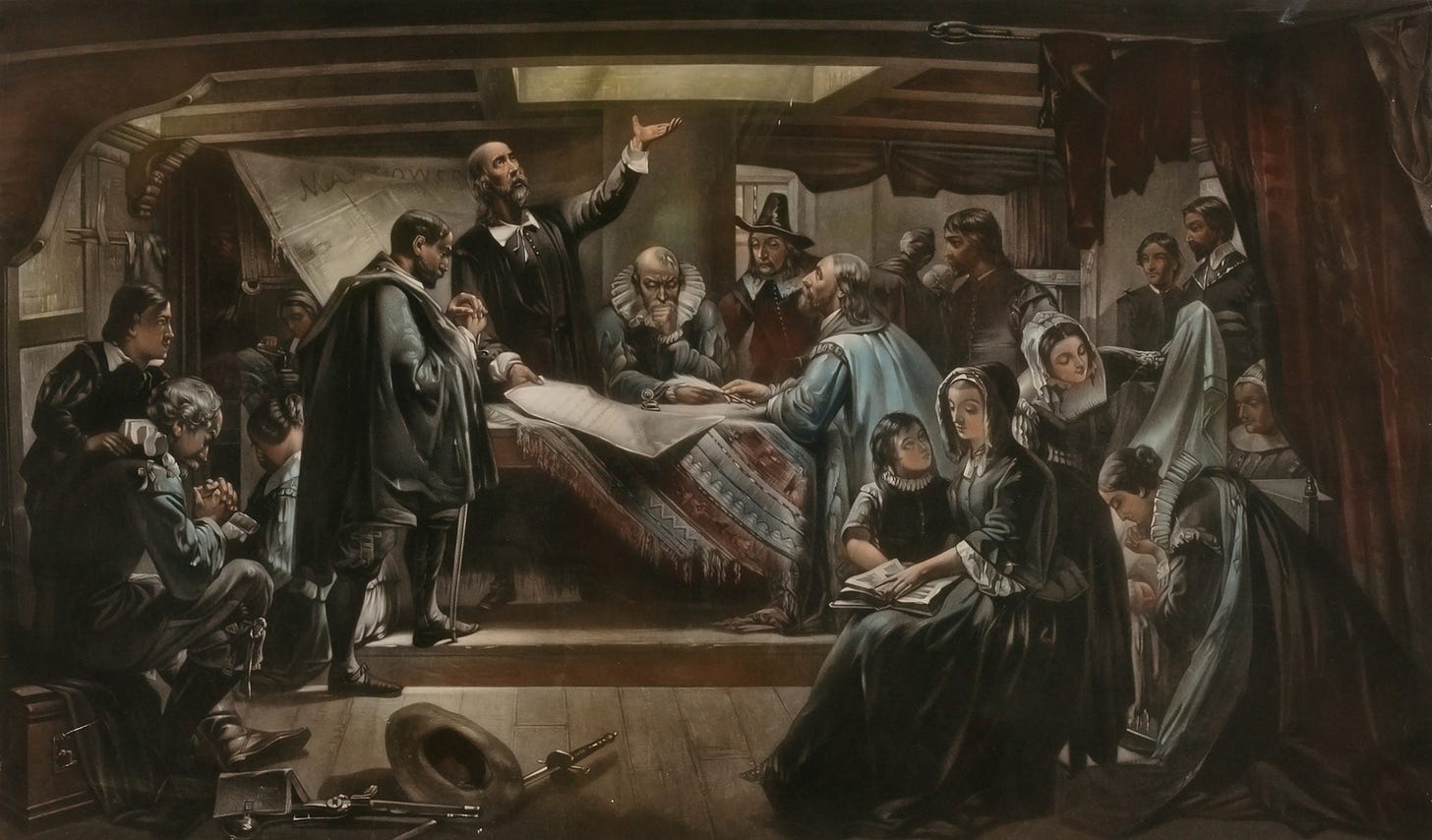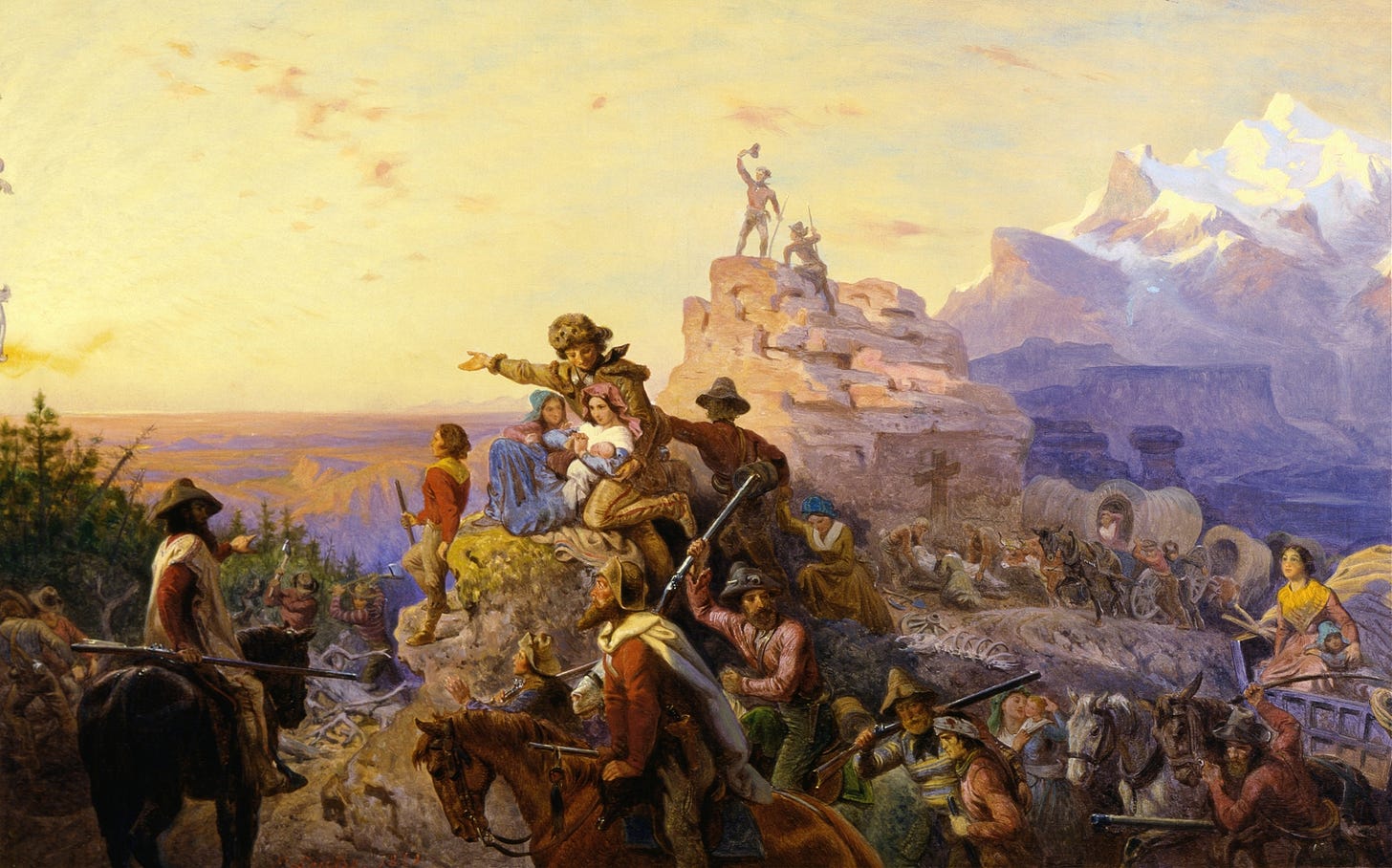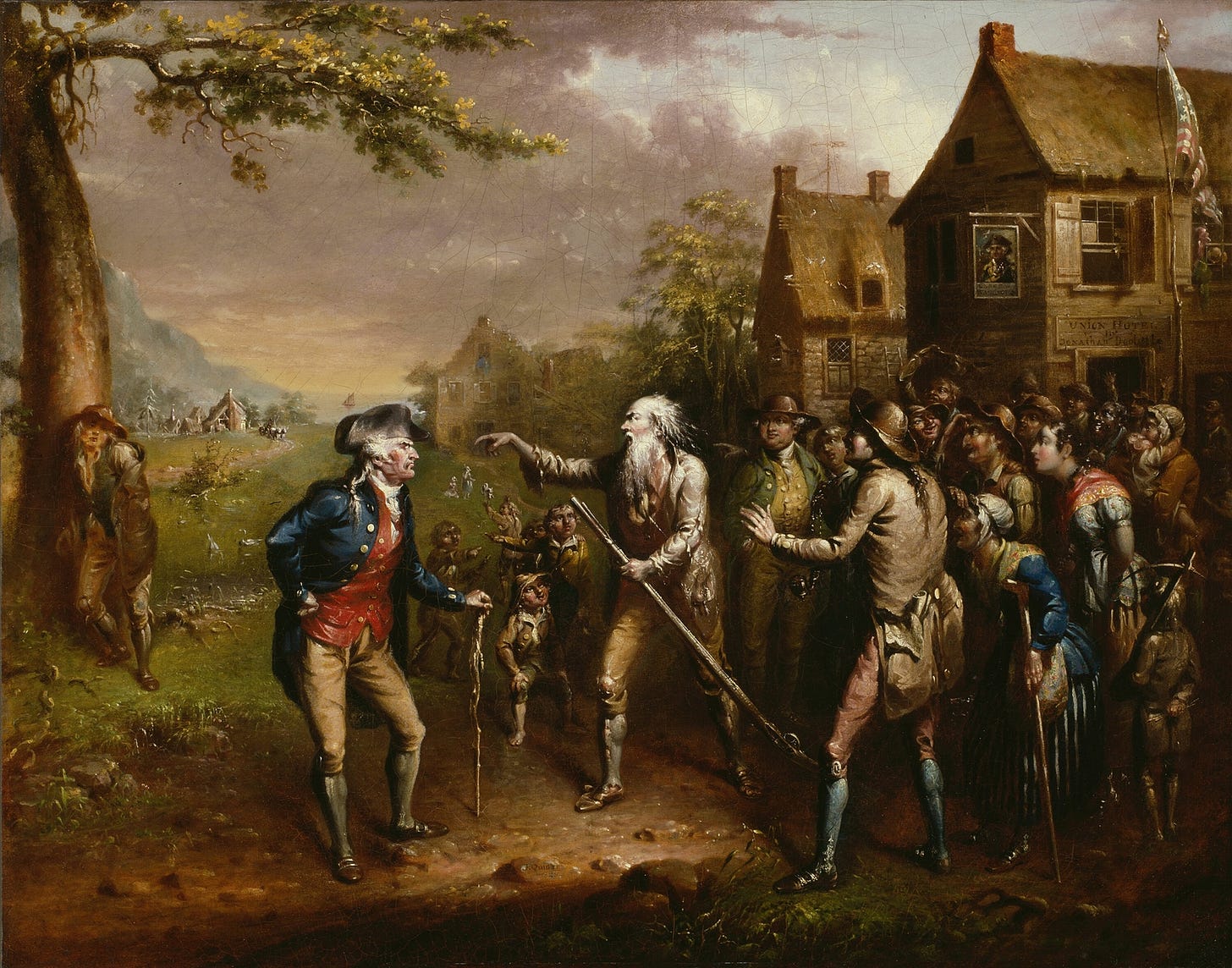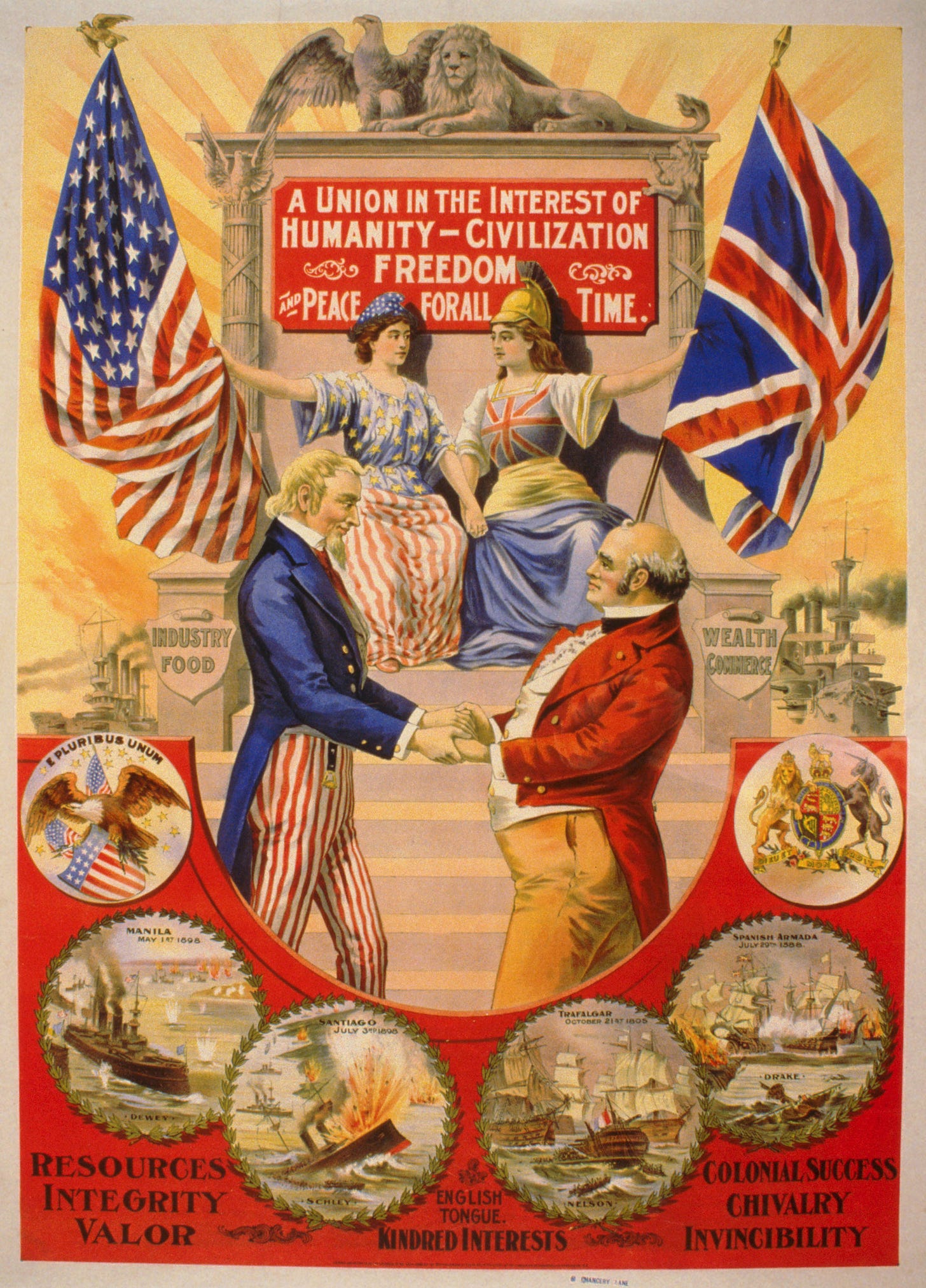Before we dive into today's post, I wanted to share some exciting news: The Dead Language Society is launching a premium tier for paid subscribers – starting this week!
If you’ve enjoyed our weekly explorations into the twists and turns of the English language and its relatives, and want to go deeper, with more nuance, engagement with historical texts and the scholarship around them, and have access to curated reading lists — you’ll love the premium issues, which will arrive every other Saturday.
The first issue, coming on April 26, explores the strange death of the English ‘r’ in words like park — and why it lives on in most of America. It’s a piece that takes us from 18th-century elocution manuals to the doors of the BBC, and explains why Londoners and Bostonians both pahk the car in Hahvahd yahd, but why someone from Los Angeles would say every ‘r’ in MacArthur park is melting in the dark.
Becoming a paid subscriber means more than just two extra emails a month. It means supporting independent scholarship, and will enable me to dedicate more time to researching and creating content that takes the often forgotten and neglected history of the English language and brings it straight to your inbox.
Paid subscriptions are $8.99/month or $95/year. Nothing changes for free readers — you’ll still get a weekly email every Wednesday —but if you’d like to support my work and unlock even more Dead Language Society, I’d be incredibly grateful if you’d upgrade your subscription by clicking the button below. Thank you so much!
Professor Barleygrow stands in front of a weathered map spanning the Atlantic Ocean, tracing imaginary lines between London and New York with his finger.
“You know, it’s strange,” he muses to his students. “Most people would assume that British English is the older, purer form of the language. And yet, when my American students say ‘I’ve gotten tired of Barleygrow’s lectures,’” — he pauses for a moment, expecting laughter — “they're actually preserving a form that Shakespeare himself used.”
He pauses again, closes his eyes, and begins reciting from memory,
“You told not how Henry the Sixth hath lost
All that which Henry Fifth had gotten?” (Henry VI, Part III 3.3)
The sudden recitation has jolted one of Barleygrow’s students out of his nap. He asks, “So does this mean that Shakespeare would have sounded… American?”
Barleygrow laughs.
“No,” he said, “it’s not quite so simple. The English of London and the English of New York have both diverged from the English you would have heard at the Globe Theatre back in 1606. But they’ve each diverged in different ways — and both forms of English retain archaic traits of their own. You see...”
As Barleygrow begins his soliloquy, his students settle back into a dreamlike haze. But in their brief moment of wakefulness, an interesting question arose: Did Shakespeare actually sound American?
And it’s a question worth asking. Which kind of English is more like the English that was spoken in Shakespeare’s day?
On the face of it, England seems to have a stronger case — Shakespeare was English, after all. But, as we’ll see, American English retains many of the features used by Shakespeare and his contemporaries that can no longer be found in British English of 2025.1
But does that mean that American English is the older form of the language? Well, no. American English has also innovated in many ways compared to British English.
So if neither country speaks the English of Shakespeare, can we at least say which of the two is closer to it? Let’s review the evidence and see what we can conclude.
The great linguistic divorce
When the first English settlers established the Jamestown colony in 1607, English varied dramatically from region to region and across class lines, just as it does today. Over the years, the settlers who crossed the Atlantic brought with them a mixture of dialects from all over the British Isles: not only from England, but from Scotland and Ireland as well.
These dialects began to mingle in the speech of the colonists, but the development of an expressly American way of speaking was slow. Although distinctly American words, such as maize and canoe (both loanwords from indigenous languages through Spanish) drew attention as early as 1619, the real beginning of the dialect split dates to the American War of Independence (1775–1783), and the resulting political separation of Britain from the new United States of America.
After this point, American English was far less influenced by the English spoken in Britain. Separated by an ocean, American speech developed in its own way as Americans forged a new national identity. British English evolved too — but under different conditions and, for a while, without American influence.
The English that England forgot
As a result of this divergence, many things that appear to a modern speaker of British English to be “Americanisms” are actually older forms of English long since abandoned in Britain. These archaic features can be found throughout American English: in its grammar, vocabulary, and pronunciation.
Let’s take Barleygrow’s example from Henry VI: the past participle gotten. Often considered an American form, gotten was perfectly acceptable in England during Shakespeare's time. British speakers later innovated by simplifying I have gotten to I have got, while Americans retained the older form.
The archaic elements in American English extend to vocabulary as well: Americans typically say fall (short for fall of the leaf) for the season that the British call autumn, yet fall was common in England in the 16th century before autumn became the preferred term a century later.
Another word that was once criticized in Britain as an Americanism is the verb guess, at least when used to mean “think” or “suppose” (as in “I guess so…”). But guess was used in this way by no less an Englishman than the philosopher John Locke (1632–1704):
“If this were constantly observ'd, I guess there would be little need of blows or chiding.” (Locke, Some Thoughts Concerning Education)
This usage of guess survived in America while fading in Britain — although, through much later American influence, it seems to be making a comeback.
Older ways of speaking also survive in American pronunciation. Take the word path, which most Americans say with a short ‘a’ sound, like in cat. Many British speakers, however, use a longer 'ah' sound, similar to the ‘a’ in father. As it turns out, the American way is closer to how English speakers sounded back in the 17th century.
The British “broad a” pronunciation developed later, starting out as a simple lengthening of the ‘a’ sound in certain words, like bath and pass, in the late 17th century. The difference between words in which the ‘a’ lengthened (e.g. bath) and words in which it didn’t (e.g. trap) became more pronounced over the 18th and 19th centuries.
Here’s a comparison of standard American and British pronunciations — you’ll have to make do with a Canadian instead of an American, though.
For a long time, the “broad a” pronunciation was considered vulgar in Britain. It only came to be thought of as prestigious by the beginning of the 20th century, as the “broad a” worked its way up the social ladder. It climbed high enough, in fact, to be incorporated into what would eventually become the stereotypical British accent traditionally heard on the BBC.
By and large, the “broad a” did not cross the Atlantic, with the exception of some coastal regions in New England and Virginia, which were more exposed to British fashion due to the trading relationships that the port towns there had with Britain.
Some of these “broad a” pronunciations had some prestige for a while in the United States — even Noah Webster (yes, of Webster’s Dictionary fame), who was fanatical about establishing a distinctly American form of the language, approved of the “broad a” in bath. His opinion on this matter did not win out.
Colonial lag
All of this adds up to a picture of American English as an archaic, or conservative, variety — one which reflects a form of English that was once spoken in Britain, but later abandoned there.
This, along with parallel developments in the American dialects of French, Spanish, and Portuguese, has given birth to the theory of colonial lag — the idea that languages, once transplanted to new shores, develop more slowly than in their original territory. If the theory is correct, it would suggest that American English is inherently more conservative, fossilized at an earlier stage of development.
But the reality is more nuanced.
Not all “Americanisms” are archaic words like fall, which had once been used in Britain. There are, in fact, many cases of genuinely innovative vocabulary to be found in American English.
The first Americanisms to appear were the many loans from North American indigenous languages: moccasin, raccoon, chipmunk, tomahawk, etc. Later, borrowings from the Dutch colonists of New Amsterdam (today’s New York) include boss, poppycock, and Santa Claus. The innovations go beyond borrowings to include made-in-America constructions of previously existing English words: know-how, icebox, subway… the list goes on.
Even the structure of American English shows innovation. As the philologist Gustav Kirchner pointed out in a 1957 article, American English allows its speakers to drop prepositions in phrases like slip one's mind or wonder the same thing rather than slip from one's mind or wonder about the same thing. Many of these constructions have now crossed the pond and can be heard in Britain as well.
Or take the distinctive second-person plural forms used by Americans — you guys, yous, or y’all (and that’s not even all of them). The form used differs from place to place in the United States, and shows how eager American English has been to reintroduce into the language the distinction between singular and plural you, which had been lost even before Shakespeare’s day.
The original English is the friends we made along the way
So, let’s revisit the question posed by Barleygrow’s sleepy student: did Shakespeare sound American?
The answer is — as is so often the case when you ask an academic — yes and no. Or, rather, it depends.
Some features of the English spoken in Shakespeare’s time are preserved in America but lost in Britain. Others have been retained in Britain but abandoned in America.
Neither of the two varieties has an exclusive claim on being the older, purer, or original form of English. Depending on what you want to highlight, you could make a case for either one. But it’s also interesting to ask — why do we care so much?
Perhaps it’s because the stories we tell ourselves about language often mask deeper questions about culture and identity. Claims about which variety is “older” or “original” usually say more about anxieties over cultural prestige and nationalism than linguistic reality.
The truth is that both American and British English are living descendants of the language Shakespeare spoke, each with its mixture of conservative and innovative features.
And let’s not forget: they are only two members of a much larger family, one that includes the many forms of English spoken the world over, each of which holds its own combination of old forms and new.
So, no, you guys — Shakespeare didn’t speak like a modern American. But don’t worry, he didn’t speak like a modern Brit either.
By the way, I’ll be calling these two versions of the language standard British and American English from now on — of course, there are many, many forms of English spoken in both of these countries, but let’s keep things simple for the sake of Substack.









I love this kind of stories! That's exactly the stuff I try to write about, but not as well as you did here. Kudos!
Interesting about the absence of the broad ‘a’ in American. An exception is the broad ‘a’ you often hear in ‘vase’,